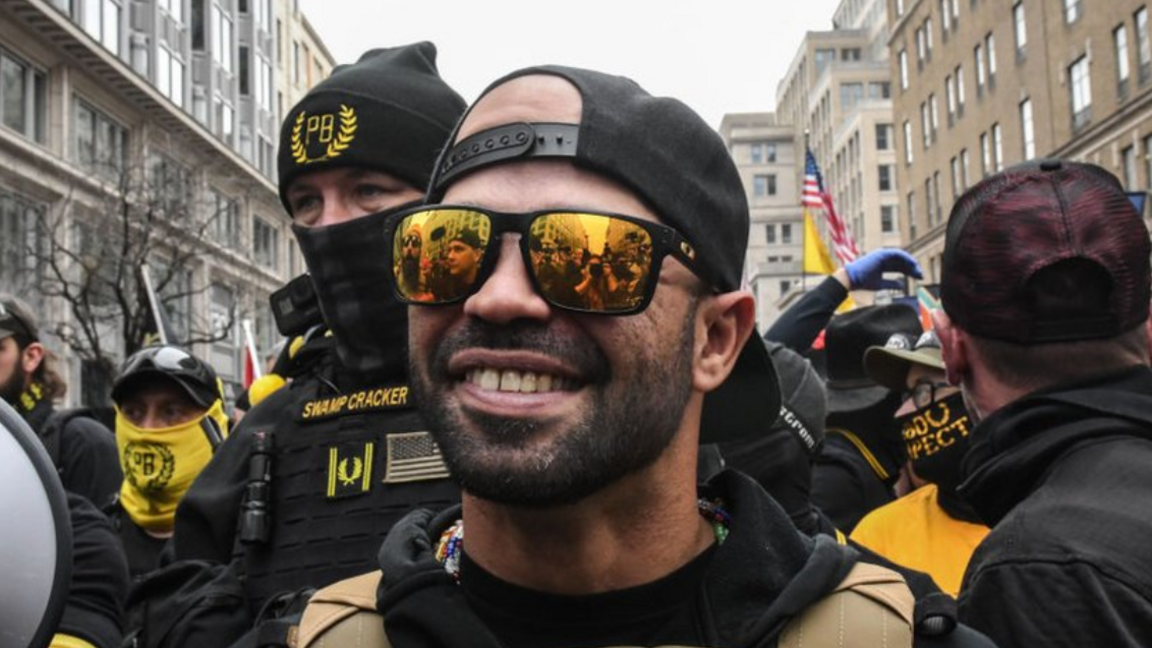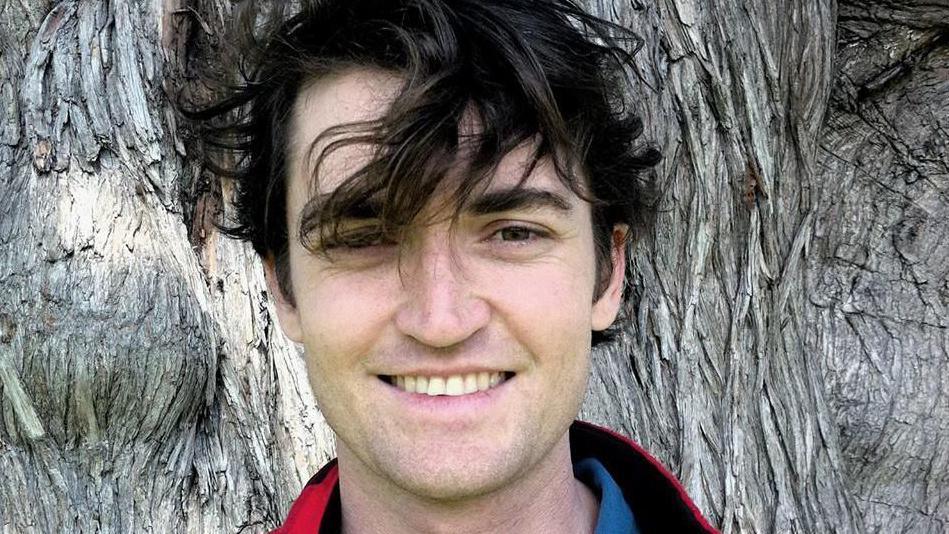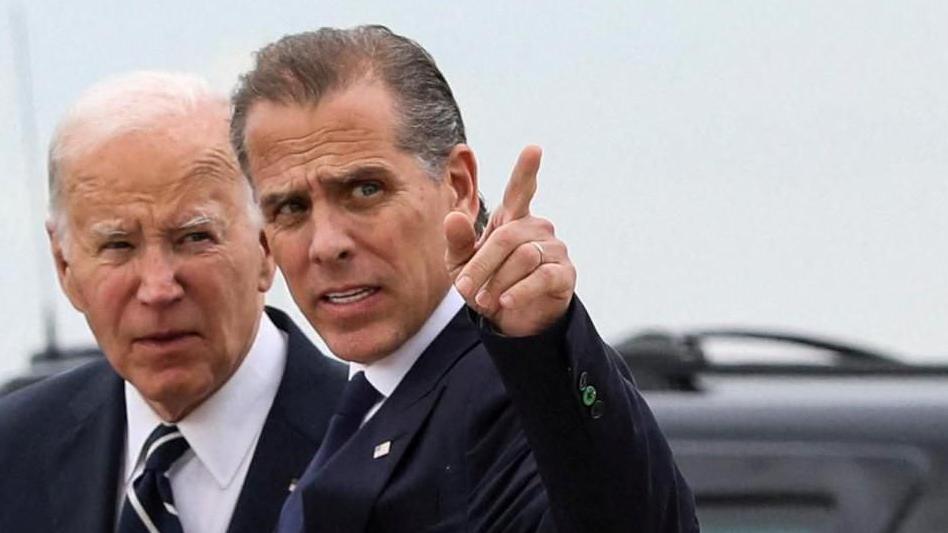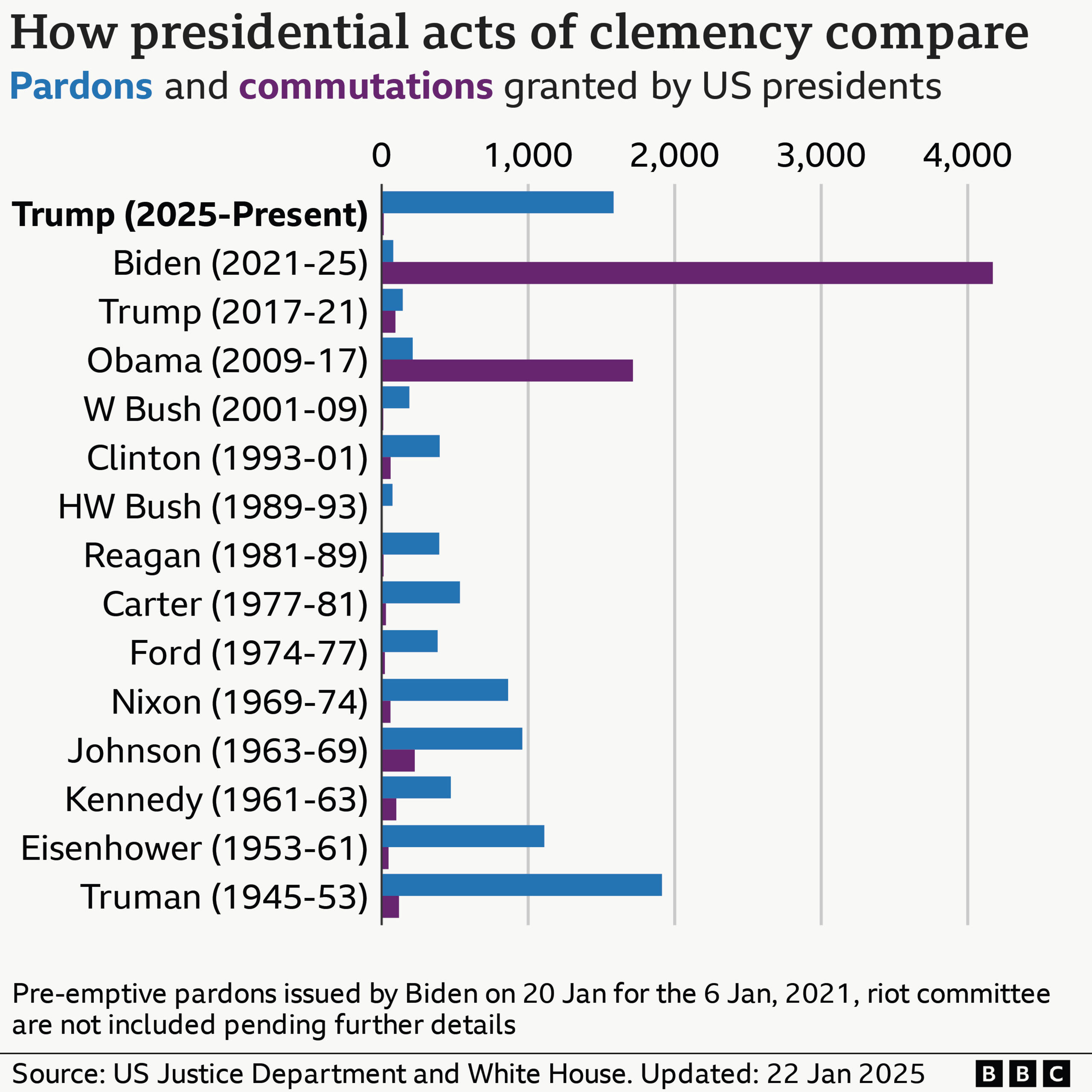What are presidential pardons and who are the 1,600 people Trump has pardoned?

Former Proud Boys leader Enrique Tarrio was described by prosecutors as the Capitol riots' "primary organiser"
- Published
US President Donald Trump has issued "full, complete and unconditional" pardons or commutations to almost 1,600 people convicted or charged in connection with the 2021 US Capitol riots.
Trump also signed an order directing the Department of Justice to drop all pending cases against suspects accused of involvement in the riot.
He later said he had signed a full and unconditional pardon for Ross Ulbricht, who operated Silk Road, the dark web marketplace where illegal drugs were sold.
What is a presidential pardon?
The US Constitution says that a president has the "power to grant reprieves and pardons for offences against the United States, except in cases of impeachment".
The pardon represents legal forgiveness, ends any further punishment and restores rights such as being able to vote or run for public office.
Although the pardoning power is considered broad, it is not limitless. For example, a president can only issue pardons for federal or national-level crimes.
This means, for instance, that Trump cannot pardon himself in connection with his state-level hush-money case in New York.
Presidents can also commute - reduce - prison sentences imposed by a federal court or the District of Columbia Superior Court in Washington.
Who has Trump pardoned?
There had been some doubt about whether Trump would release all of the Capitol rioters. Vice-President JD Vance had suggested some of those involved in violence might not get clemency.
But Trump pardoned almost all of the nearly 1,600 rioters who had been been convicted or arrested so far - including those who violently assaulted police officers, smashed windows or tore through congressional offices.
This included former Proud Boys leader Henry "Enrique" Tarrio, who was jailed for 22 years for seditious conspiracy over the riot.
Fourteen other ring leaders - other members of the Proud Boys and another right-wing group called Oath Keepers who received the longest sentences - have had their sentences commuted. This means their records will not be expunged, but they will be freed.
Oath Keepers founder Stewart Rhodes had his 18-year sentence commuted.
The presidential proclamation pardoning the 1,600 said that it "ends a grave national injustice that has been perpetrated upon the American people over the last four years and begins a process of national reconciliation".
Watch: President Trump pardons nearly all 6 January Capitol riot defendants
Pamela Hemphill, who pleaded guilty and was sentenced to 60 days in prison for her part in the riots, told the BBC that she rejected Trump's pardon.
"Accepting a pardon would only insult the Capitol police officers, rule of law and, of course, our nation," she said.
"I pleaded guilty because I was guilty, and accepting a pardon also would serve to contribute to their gaslighting and false narrative."

Separately Trump posted on his Social Truth platform that he had called Ulbricht's mother to tell her he had pardoned her son.
Silk Road - which was shut down in 2013 after Ulbricht was arrested - sold hacking equipment and stolen passports as well as drugs.
But his cause was later championed by libertarians, who said the case was an example of government overreach.
In his online post, Trump said: "The scum that worked to convict him were some of the same lunatics who were involved in the modern day weaponization of government against me."
During his first presidential term, Trump granted 237 acts of clemency, according to the Pew Research Center, made up of 143 pardons and 94 commutations.
Many were issued in a flurry before he left office after losing to Joe Biden, including 73 people pardoned in the final hours of his presidency.
He also pardoned Charles Kushner, the father-in-law of his daughter Ivanka. Kushner was sentenced to two years in prison in 2004 for charges including tax evasion, campaign finance offences and witness tampering.
Who did Biden pardon in the final weeks of his presidency?
One of Biden's final acts as president was to issue a number of pre-emptive pardons to prevent what he called "unjustified... politically motivated prosecutions".
The pardons were for public officials including Anthony Fauci - who led the American response to Covid-19 - and people who investigated the 6 January riots.
He also issued a pre-emptive pardon to Mark Milley, a former chairman of the Joint Chiefs of Staff, who previously described Trump as "fascist to the core".
Biden said this did not imply any "wrongdoing" by any of the individuals concerned - but said they faced the threat of baseless investigations as his rival Donald Trump returned to the US presidency.
The outgoing president also pardoned a number of family members, including his brothers James and Frank Biden, and sister Valerie Biden Owens.
In December, Biden pardoned his son Hunter, who was about to be sentenced in two criminal cases involving tax and gun offences.
He had previously ruled out any involvement with his son's case.

In December, Biden also issued presidential pardons to 39 Americans convicted of non-violent crimes and commuted the sentences of nearly 1,500 others. He also commuted the sentences of 37 federal death row inmates, switching their penalty to life in prison without parole.
And in January, he commuted the sentences of nearly 2,500 people convicted of non-violent drug offences.
Before the final months of his presidency, Biden had previously issued fewer pardons than most recent presidents.
How many pardons have other presidents issued?
Barack Obama granted 1,927 acts of clemency during his two terms in office between 2009 and 2017, according to Pew. These included 1,715 commutations and 212 pardons.
Most of those were for people who had been convicted of narcotics charges at the height of the so-called US war on drugs.
In 2001, Bill Clinton pardoned his younger half-brother, Roger Clinton, for a cocaine-related offence that dated back to 1985.

One of the most controversial presidential pardons was granted by Gerald Ford to his predecessor Richard Nixon in 1974 - covering acts that occurred during the Watergate Scandal.
It was described as an effort to heal the nation.
